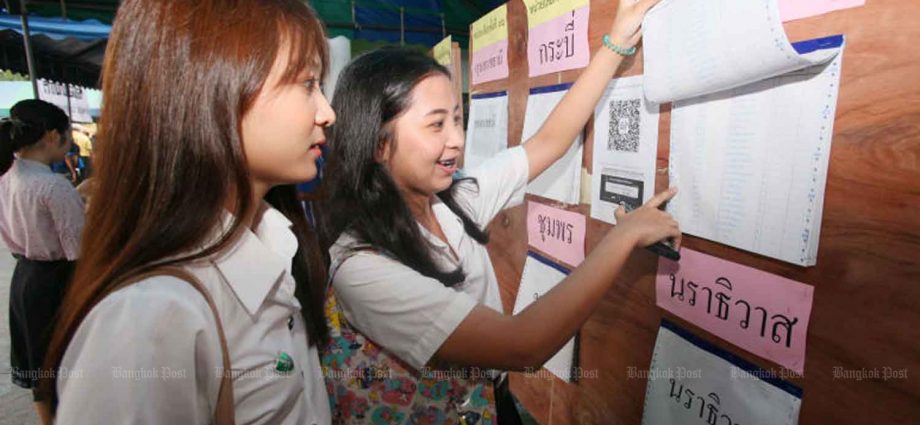Higher minimum wage, better welfare and lese majeste reforms on their wish-list

First-time voters are eager to make their voices heard at the upcoming general election, despite representing only 1.5% of total voters.
Data from the Office of Registration Administration indicates there are 811,607 new voters out of the total 52,045,889 voters; they make up the smallest group.
They are part of Gen Z, which comprises legitimate voters aged 18-26 years old and accounts for approximately 7,670,354 people, representing about 14.7% of the total voters.
Despite their relatively small number, a recent poll by Assumption University (AU) found that 88.5% of Gen Z voters expect to see a difference due to their political engagement.
The research by AU also highlighted that Gen Z is interested in politics, with 81% of respondents following political news regularly and a half making an extra effort to find out about politics. Only 16% of the sampled group were found to be apathetic.
With the election set for May 7 if the government completes its term, it remains to be seen how much of an impact first-time voters will have in shaping the country’s political landscape.
“However, I feel I can make a difference. I think even one vote is important,” said Sirinyakorn Suratepin, a university student, 21, for whom this will be her first election.
“New voters are important since people in my generation make up a sizeable number and are politically active,” she said.
When asked what issue she wants the next government to address, Ms Sirinyakorn said public transport is the most important issue for her as a city dweller.
While she is happy enough with fares, she wants higher quality vehicles, adding that “it is currently only available in Bangkok; however, expanding it to other adjacent provinces would be ideal.”
Ms Sirinyakorn said the government’s publication of election information is insufficient and difficult to access. “When I look at the infographic, it is overloaded with information, and for some who have less education, it could be hard to understand.”
While some may be optimistic about the impact of new voters, Nattawat Khunpradit, an 18-year-old university student, believes it will be minor. “New voters make up less than a million of the total, so they may not make much influence,” says Mr Nattawat.
Regardless, Mr Nattawat is excited about participating in the democratic system by casting a vote, and hopes the next government will solve “long-term inflation challenges”, allowing Thais to live better lives.
Mr Nattawat said: “Thailand’s political situation is unpleasant, with the government favouring the privileged class and large private enterprises. We also have poor social and economic conditions and inflation, which is causing prices to skyrocket.”
Waruntorn Suwanduang, another university student, describes the country’s current state as “hopeless”.
“The rich are richer while the poor are poorer, the employment rate is shrinking, which means graduates face a lot of pressure from political and economic circumstances just to escape poverty,” he said.
Mr Waruntorn, 21, who is excited about casting his ballot for the first time, wants Section 112 (the lèse-majesté law) axed and and the minimum wage enhanced, along with basic welfare.
In the 2019 general election, about 38,268,375 people cast ballots, or 74.69% of the total eligible population. In the 2022 Bangkok gubernatorial election, which was smaller, 2,673,696 people voted out of 4,402,948 individuals eligible, or 60.73%.
According to the Office of the Election Commission of Thailand, the formal publication of the list of MP applicants will be made on April 14. Before that, candidates must register on April 3-7.

